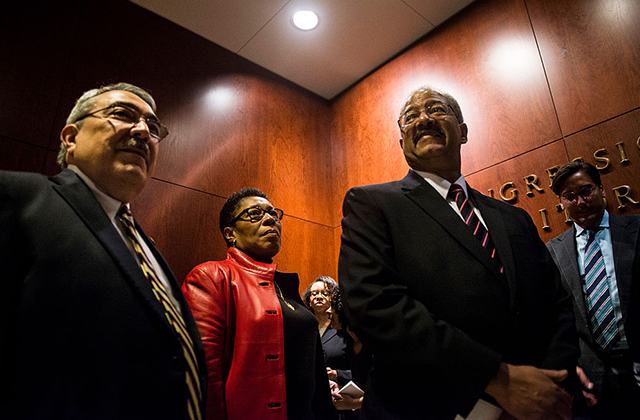The Congressional Black Caucus Foundation’s (CBCF) Annual Legislative Conference began this week on Wednesday (September 14). One item appears to be missing from the agenda: climate change.
Denise G. Fairchild wrote about the exclusion for The Root, noting that Black communities will bear disproportionate impact from the consequences of climate change. She says:
One must ask: What’s that all about? How does the largest gathering of influential black politicos and leaders in the country not insert itself into the largest global-policy conversation taking place today?
The absence of climate change reveals a glaring disconnect with the theme of this year’s legislative conference, “Defining the Moment, Building the Movement.” Climate change is, arguably, the defining issue for human civilization, particularly communities of color. As a result, the CBCF fails to fully define the moment and leverage the power of its annual convening to build the movement we need on climate change.
Some of the major points Fairchild hits:
- Black children are 10 times more likely to die from asthma than their White peers. This is, in large part, due to their proximity to polluting industries that emit not only carbon, which warms the planet, but also harmful toxins, which harm human health.
- When it comes to climate action, Black people in the U.S. rank it as a political prioroty: Two-thirds say climate change is a serious problem. Eighty-three percent support limits on carbon pollution from coal- and gas-fired power plants under the Clean Power Plan. Fifty-seven percent believe expanding clean energy will reduce their energy costs.
- The fossil fuel industry and Congressional Black Caucus (CBC) have a positive connection. The American Petroleum Institute gave the caucus $160,000 in 2012. The CBC Political Education and Leadership Institute’s 21st Century Council includes fossil fuel industry representatives, Fairchild writes. Exxon Mobil, the American Petroleum Institute and BP are all present.
On the close ties between the industry and caucus, Fairchild says:
These cozy financial arrangements set up an uncomfortable quid pro quo with African-American political leaders and prevent us from addressing one of the most important issues of our time. In 2009, for example, lobbyists and executives from these industries helped draft a report in the caucus’s name stipulating that cost factors be considered in climate-mitigation policies—an echo of industry talking points.
Find her complete story here.
